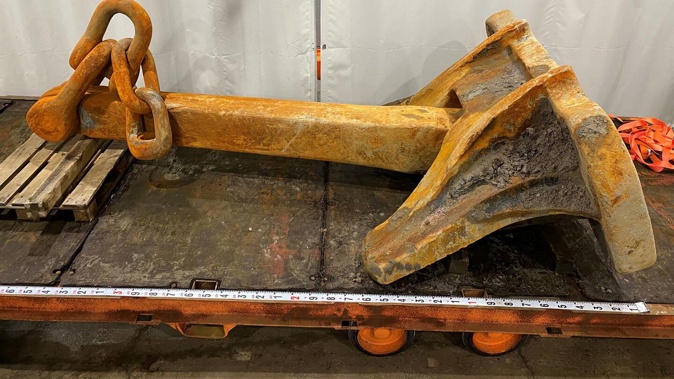
Finland filed criminal charges against the top officers of a Baltic oil tanker today in connection with severe damage done to undersea cables in December.
It was one of a string of energy and telecom ruptures in the region that many European officials suspect were part of a sabotage campaign directed by Moscow.
The National Prosecution Authority in Helsinki indicted the captain and two first officers of the Eagle S, a Cook Islands-registered tanker suspected of being part of a “shadow fleet” of ships transporting Russian oil in violation of international sanctions.
The officers are charged with aggravated criminal mischief for allegedly dragging the ship’s anchor for more than 90km across the Gulf of Finland on Christmas Day, severing five electricity and telecom cables in the process and causing almost US$70 million ($118m) in damage.
“The disruption of electricity transmission and telecommunications cables with very high transmission capacity is also suspected to have caused a serious risk to energy supply and telecommunications in Finland,” prosecutors said in a statement.
Prosecutors, who did not immediately respond to a request for further comment, did not name the mariners or give their nationalities, though they are reportedly Georgian and Indian nationals.
Finland did not accuse Russia of involvement, although officials noted that the Eagle S had just departed from a Russian port with a cargo of oil products.
Finnish officials had suspected from the beginning that the incident bore Kremlin fingerprints. The ship was immediately seized, and Finnish President Alexander Stubb said weeks later that the event was “definitely” linked to Russia.
The tanker’s anchor dragging was one of several cases of damage to undersea cables that have occurred since Russia’s invasion of Ukraine, an incursion that has been fiercely opposed by Finland and other Baltic neighbours.

Oil tanker Eagle S, which flies under the flag of the Cook Islands, next to Finnish border guard ship Uisko (left) and tugboat Ukko. Photo / Jussi Nukari, AFP
A Hong Kong-registered container ship, the Newnew Polar Bear, ruptured a Baltic gas pipeline in October 2023, and a Chinese ship, the Yi Peng 3, cut a pair of data cables off Sweden in November.
The incidents have led to a chorus of accusations that Moscow is using proxy agents to disrupt power and communication networks as European nations struggle to wean themselves from Russian energy supplies.
Western intelligence agencies, including the CIA and its counterparts in Nordic and Baltic countries, have cast doubt on the assumption of Russian responsibility, citing indications that the cases of undersea cable damage were accidental - caused by woefully maintained vessels and poorly trained crews rather than sabotage.
In bringing charges that carry significant prison sentences, Finland has moved to impose a cost on shadow fleet operators for damage to undersea infrastructure without attributing their actions to Moscow.
“The only way to heighten the threshold for anybody to participate in this kind of sabotage is to bring charges with heavy penalties,” said Pekka Toveri, a former director of Finland’s military intelligence service who now represents Finland in the European Parliament.
Toveri said he continues to suspect Russia’s hand. “The next captain will think when he gets orders to drop an anchor [on undersea cables or pipelines] that it is not in their best interests to do that,” he said.
The damage caused by the Eagle S and other vessels came amid a broader wave of Russian sabotage operations across Europe.
They included an alleged plot to assassinate a German arms executive and arson attacks involving alleged Russian proxies in Poland, Lithuania, England, and other countries.
Take your Radio, Podcasts and Music with you









